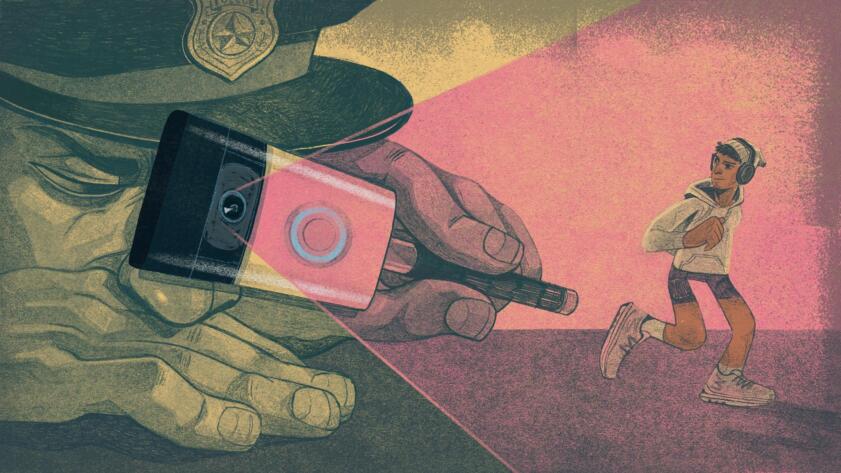Subscribe to Hello World
Hello World is a weekly newsletter—delivered every Saturday morning—that goes deep into our original reporting and the questions we put to big thinkers in the field. Browse the archive here.
Dear reader,
My name is Lam Thuy Vo and I’m a reporter at The Markup. As you may have seen, this week I published an investigation into the partnerships between Ring, the popular Amazon-owned doorbell camera system, and the Los Angeles Police Department. Across the U.S., more than 2,600 police departments have special access to Neighbors, the social platform connected to Ring, and receive alerts about posts from users describing supposed crimes. You can read about who’s the loudest on these platforms here, how it shows up in police officers’ day-to-day here, and how to make ethical decisions about home security systems here.
My interest in the subject began five years ago, when I first met Ramon Hernandez, a 105-year-old man who lived in Harlem. Hernandez moved to his neighborhood more than 40 years ago, when it was predominantly Black and when playing dominoes on the street and sitting on the sidewalk in the summer were just natural parts of life in the northern reaches of Manhattan. In recent years the neighborhood gentrified. More affluent White folks moved in. And soon after, the police started breaking up Hernandez’s domino sessions.
The main reason? As I found in reporting a piece for BuzzFeed News, over the course of three years starting in 2015, thousands of noise complaints were filed by a handful of new residents on Hernandez’s block on 136th Street. According to interviews with dozens of people on that block, these noise complaints only represented the concerns of a handful of people. And yet they were seen as a problem that needed police intervention.
As a reporter, I’ve always been interested in systems that disadvantage some people—when it comes to policing, they are often Black or Latino—while prioritizing the wishes of a smaller, much more powerful subset—often affluent White folks. The author Kiese Laymon formulated the most poignant summary of this dynamic that I’ve ever seen in his beautiful memoir, Heavy:
Right there, in the same spot where I remember Grandmama teaching me how to hang up clothes on the clothes-line, she told me about not being able to vote, not pissing where she needed to piss, not eating what she needed to eat, not walking how she needed to walk, not driving when she needed to drive, because she was born a poor black girl in Scott County, Mississippi.
She talked about the shame of white-folk wants always trumping black-folk needs.
I have seen this dynamic play out again and again. Last year, I wrote about how in communities across the country, residents have expressed concern about stolen packages, with outrage spilling out from online platforms like Nextdoor and Facebook. In response, lawmakers in 13 states have made package theft a felony. One of the first cases that a police department in Georgia brought within the framework of the state’s new law was against a Black man who stole fairy lights, two pairs of Spanx, and bridal shower napkins.
In Brooklyn, I interviewed business owners whose establishments became targets for NYPD-led multi-agency raids in part because there were many noise complaints lobbed against them. The majority of targeted businesses in this gentrifying neighborhood in Brooklyn were either Black-owned or served a largely Black clientele.
In other words, I’ve often seen governmental bodies prioritize the concerns of richer White residents over the needs of Black and Latino residents—often in the form of basic police responsiveness, as I show in one of this week’s pieces.
This led me to look at the relationship between Ring and police departments. I wanted to better understand what kind of information Ring’s Neighbors platform was sending to police, given that community surveillance on platforms like Neighbors breeds paranoia, perpetuates prejudice, and puts people at heightened risk of police or vigilante violence. As a keen observer of misinformation on social media, I know that algorithms and social platforms favor a vocal and often privileged minority. And I want us to ask ourselves: What does it mean when the complaints of Ring camera owners become the signals that both residents and the authorities use to interpret the health of a neighborhood? Who is not heard? And how do we need to adjust our listening mechanisms to better serve everyone in the community, not just the loudest few?
I’d love to hear your thoughts on these questions. Feel free to share them with me at lam@themarkup.org.
Best,
Lam




